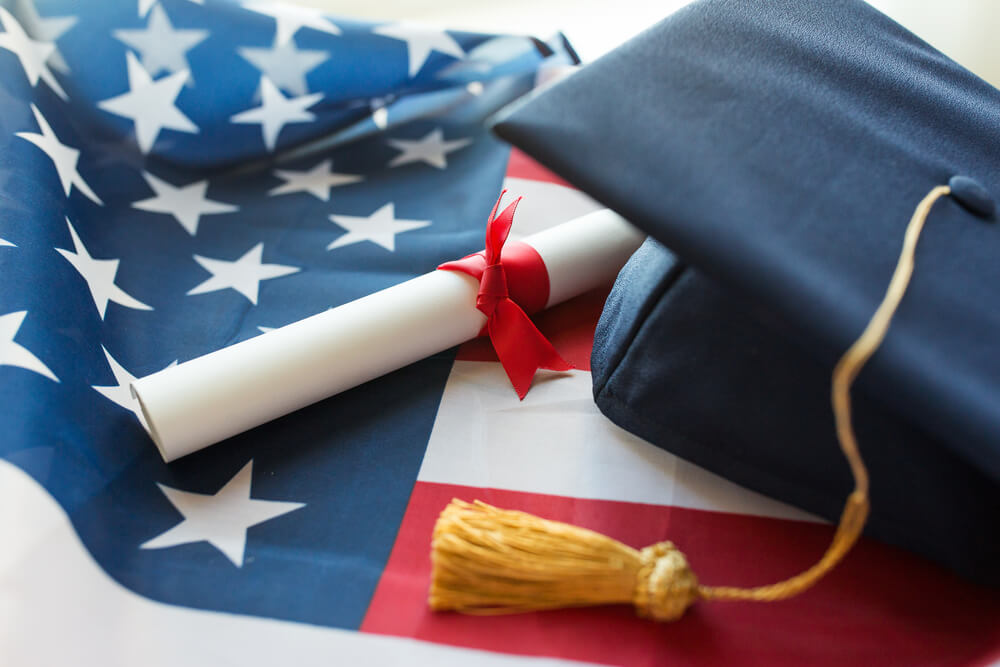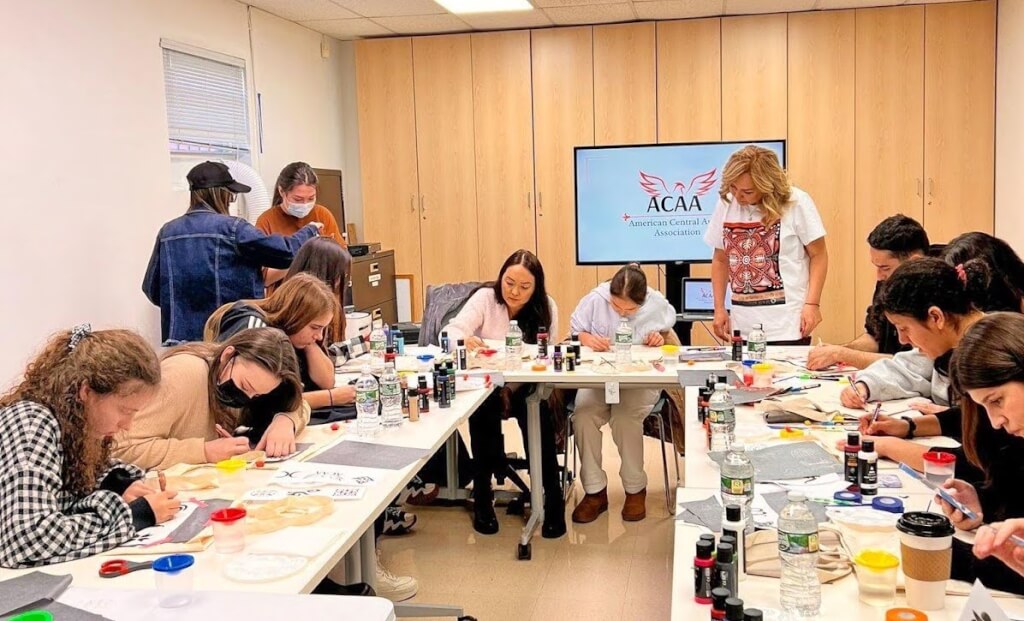Higher Education in New York: What Immigrants Can Count on
'09.03.2020'
Source: comptroller.nyc.gov
If you would like to study at a public college or university in New York State, this information will be useful to you. Find out about who can enter an educational institution, receive scholarships and benefits, and what to do for students who do not have legal immigration status.

Who can apply for college?
Anyone can apply for college, regardless of their immigration status. This is stated in the Handbook of Immigrant Rights and Services for Immigrants on the official website city of new york.
At the same time, educational institutions should not report on the immigration status of a student to government agencies. Exceptions may apply only to international students arriving on a student visa.
How secure is student information?
So, at the City University of New York (CUNY) and at the State University of New York (SUNY), the student’s personal information, including immigration status, is considered confidential. This is ensured by the Federal Education Rights and Privacy Act (FERPA).
According to this law, personal information about the student is kept secret for everyone except: representatives of the teaching staff, employees and employees of the financial department of the educational institution, but they must also have a “legitimate interest” in receiving such information.
You can also get information about the student for the purposes of criminal proceedings on the basis of a subpoena issued to a civil servant in court, the source said.
In any other case, access to the student’s personal information is possible only with his written permission.
Can a student pay tuition at a reduced rate?
In New York, a student who does not have a legal immigration status can study at a reduced rate for a state resident. But there is number of conditions:
1. A student must graduate from high school in New York State after studying for at least two years, then apply for admission to SUNY or CUNY within five years after receiving a high school diploma;
- The student must attend the State Approved Secondary Completion Test Program (TASC);
- Benefits are also provided to students who, before January 1, 2014, attended the General Equivalency Diploma (GED) diploma program, received the indicated TASC / GED diploma in New York State, and applied for admission to SUNY, CUNY, state or district college for five years after graduation;
- A student must submit to the SUNY or CUNY administration an affidavit certified by a notary that he has applied for legalization of immigration status or will submit one as soon as he has the right to do so.
5. A student who has submitted evidence of permanent residence in the state is also entitled to benefits. To find out what proof of permanent residence in the state you need to present, contact the appropriate SUNY or CUNY services.
Can immigrant students receive scholarships or financial assistance for studies?
There are various programs in New York that provide financial assistance to students. For example, there is a special program implemented by the government through the US Department of Education, designed for students and their parents. You can learn more about it. on the department website.
College students in New York can also count on state assistance.
You can use the New York State Tuition Assistance Program (TAP) to do this. It provides grants to eligible individuals to help them pay tuition fees.
In addition, some students may participate in the recently launched Excelsior Scholarship Scholarship Program. It offers free tuition at some colleges and universities in New York State.
Further information on these and other state educational programs is available. on this site.
What should students do without documents if they want to receive financial assistance?
If students do not have documents, then they are not eligible to participate in major federal and state programs that provide financial assistance.
In particular, such students cannot receive assistance under the programs: TAP, New York State Aid for Part ‐ Time Study (APTS, monetary assistance for part-time students), Pell Grants (subsidies), Federal Supplemental Educational Opportunity Grants ( FSEOG, grant), Perkins Loans (loan), Stafford Loans (loan), Parent Loans for Undergraduate Students (PLUS, loan) and Federal Work Study (Work and Study program).
On the subject: What services can immigrants get for free in New York
At the same time, undocumented students can apply for participation in private scholarship and loan programs. For example, to the universities CUNY and SUNY - they accept applications from all students, regardless of their immigration status.
We are talking about such programs:
- Educational Opportunity Program (EOP) Is a grant that SUNY students with financial or educational difficulties can apply for.
- Search for Education, Elevation, and Knowledge (SEEK) - This program exists at CUNY colleges with four years of study;
- College Discovery (CD) - the program exists in CUNY colleges with two years of study.
What are the benefits for students under the listed types of assistance?
Students who receive one of these types of assistance may:
- receive a subsidy for administrative fees and book purchases;
- get an opportunity to study additionally with a tutor;
- consult on career issues and receive psychological counseling.
How to apply for one of the listed types of assistance?
To apply for one of these types of assistance, you need to check the box next to EOP, SEEK or CD when filling out the standard application form for admission to CUNY or SUNY.
Students are also required to provide evidence that their financial situation meets the established criteria for receiving such assistance.
Students can get help filling out the questionnaire and ask their questions to financial aid counselors at the school.
Other scholarship programs
Scholarship of Peter F. Vallone Academic Scholarship Program) This program can be used by full-time (full-time) CUNY students who have graduated from high school in New York with a specific average mark and have studied certain disciplines. All CUNY students are automatically on the list of candidates for this scholarship.
Honors College Program Honors College Programs operates at CUNY colleges: Baruch College, Brooklyn College, City College, Hunter College, John Jay College of Criminal Justice, Lehman College, Queens College and College of Staten Island. Since 2007, this program has fully paid the tuition and administrative fees for selected students, costs of $ 7500 and other types of assistance.
To become a member of this program, you need to apply in September of the last year of high school. An application for participation in the Honors College program will also serve as an introductory application for a regular program at CUNY.
Students with a certain academic performance can expect to receive scholarships, they must also provide essay, recommendations and interviews.
Other sources of financial assistance for students
Private scholarships
Students without legal immigrant status can also try private scholarships. For example, you can apply for participation in one of the following programs:
- Mexican American Legal Defense and Education Fund: more info Read here.
- Students Opening Doors for Others Program: detailed information - on this site.
Special scholarships from universities
Students of private higher education institutions may also receive financial assistance if they meet certain criteria. You can learn more about this by contacting the departments dealing with financial assistance in specific educational institutions.
Students can also receive scholarships from educational institutions based on academic achievements, for this they do not need to be a US citizen.
Private loans
Many higher education institutions in America provide private loans to students. Basically, US citizens can count on receiving them, but there are exceptions - it all depends on the type of loan and the specific institution.
In addition, a dean at a university can issue permission to issue a loan on an individual basis. The decision on the loan amount and interest rate often depends on the dean and certain provisions of the institution’s internal policy. For more information, the student can arrange a personal meeting with the dean.
Also, students who use the services of one bank for a long time may try to apply for a private loan to study at this financial institution.







